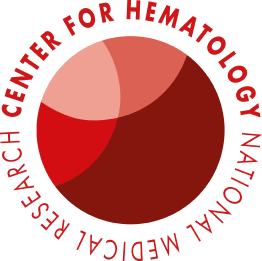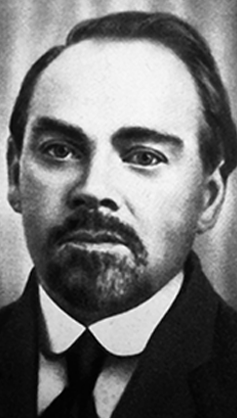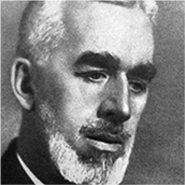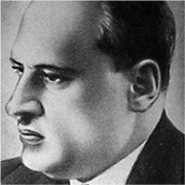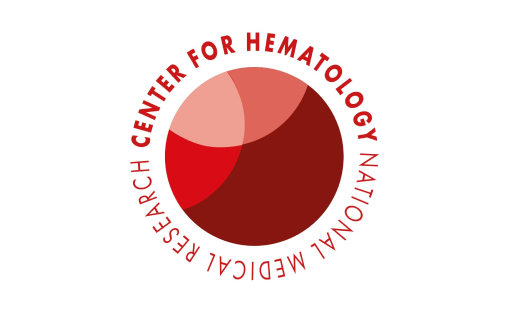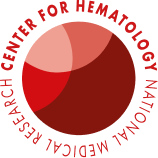- Official Information
Official Information
- A Word from Our Director
- About the NMRC for Hematology
- Structure
- Administration
- Departments
- History
History
- Our History
- All Directors of the NMRC for Hematology
All Directors of the NMRC for Hematology
- Our Awards
- Printed Publications of the NMRC for Hematology
- Gallery
- News
- Reviews
- Press Office
- Useful Resources
- Medical Tourism
- Consultative Doctors
- Clinical Departments
- Our Doctors
- Price List for Paid Medical Services
- High-tech Medical Care
- Preparation for Diagnostic Tests
Preparation for Diagnostic Tests
- Preparation instructions for a rectoromanoscopy
- Preparation instructions for low-dose computed tomography (CT) of skeletal bones without bolus contrast enhancement
- Preparation instructions for computed tomography (CT) of the thoracic cavity, brain, paranasal sinuses, orbits, osteoarticular apparatus, soft tissues of the neck without bolus contrast enhancement
- Preparation instructions for magnetic resonance imaging (MRI)
- Preparation instructions for a colonoscopy
- Indications for ultrasound examination of veins and arteries
- Preparation instructions for an excretory urography
- Preparation instructions for computed tomography (CT) of the thoracic cavity, brain, urinary system, vessels of the head and neck, aortography with bolus contrast enhancement
- Preparation instructions for computed tomography (CT) of the abdominal and pelvic organs with and without bolus contrast enhancement
- Preparation instructions for an esophagogastroduodenoscopy (EGD), bronchoscopy, laryngoscopy
- Preparation instructions for an ultrasound examination of the abdominal organs
- Indications and contraindications for echocardiography (ECHO-KG)
- Patient Stories
- Procedure for Issuing Medical Documentation
- Internal Regulations for Patients and Other Visitors
- Rules for Visiting Hospital Patients
- About
About
- Official Information
Official Information
- A Word from Our Director
- About the NMRC for Hematology
- Structure
- Administration
- Departments
- History
History
- Our History
- All Directors of the NMRC for Hematology
All Directors of the NMRC for Hematology
- Our Awards
- Printed Publications of the NMRC for Hematology
- Gallery
- News
- Reviews
- Press Office
- Useful Resources
- Patients
Patients- Medical Tourism
- Consultative Doctors
- Clinical Departments
- Our Doctors
- Price List for Paid Medical Services
- High-tech Medical Care
- Preparation for Diagnostic Tests
Preparation for Diagnostic Tests
- Preparation instructions for a rectoromanoscopy
- Preparation instructions for low-dose computed tomography (CT) of skeletal bones without bolus contrast enhancement
- Preparation instructions for computed tomography (CT) of the thoracic cavity, brain, paranasal sinuses, orbits, osteoarticular apparatus, soft tissues of the neck without bolus contrast enhancement
- Preparation instructions for magnetic resonance imaging (MRI)
- Preparation instructions for a colonoscopy
- Indications for ultrasound examination of veins and arteries
- Preparation instructions for an excretory urography
- Preparation instructions for computed tomography (CT) of the thoracic cavity, brain, urinary system, vessels of the head and neck, aortography with bolus contrast enhancement
- Preparation instructions for computed tomography (CT) of the abdominal and pelvic organs with and without bolus contrast enhancement
- Preparation instructions for an esophagogastroduodenoscopy (EGD), bronchoscopy, laryngoscopy
- Preparation instructions for an ultrasound examination of the abdominal organs
- Indications and contraindications for echocardiography (ECHO-KG)
- Patient Stories
- Procedure for Issuing Medical Documentation
- Internal Regulations for Patients and Other Visitors
- Rules for Visiting Hospital Patients
- Science
- Home
- About
About the NMRC for Hematology- Organization for the strategic development of Russian healthcare in hematology, transfusiology and oncology
- Center for interregional cooperation
 General Director, Corresponding Member of the Russian Academy of Sciences, Doctor of Medical Sciences, Chief Freelance Specialist Hematologist of the Ministry of Health of RussiaReception: +7 (495) 612-21-23Fax: +7 (495) 612-42-52E-mail: director@blood.ru
General Director, Corresponding Member of the Russian Academy of Sciences, Doctor of Medical Sciences, Chief Freelance Specialist Hematologist of the Ministry of Health of RussiaReception: +7 (495) 612-21-23Fax: +7 (495) 612-42-52E-mail: director@blood.ru First Deputy General Director, Chief Freelance Specialist Transfusiologist of the Ministry of Health of Russia, Doctor of Medical SciencesReception: +7 (495) 613-87-30E-mail: director@blood.ru
First Deputy General Director, Chief Freelance Specialist Transfusiologist of the Ministry of Health of Russia, Doctor of Medical SciencesReception: +7 (495) 613-87-30E-mail: director@blood.ru Wednesdays from 16:00 to 18:00
Wednesdays from 16:00 to 18:00 First Deputy General Director, Chief Freelance Specialist Hematologist of the Ministry of Health of Russia for the Central Federal District, Candidate of Medical SciencesReception: +7 (495) 612-63-91E-mail: director@blood.ru
First Deputy General Director, Chief Freelance Specialist Hematologist of the Ministry of Health of Russia for the Central Federal District, Candidate of Medical SciencesReception: +7 (495) 612-63-91E-mail: director@blood.ru Wednesdays from 16:00 to 18:00
Wednesdays from 16:00 to 18:00 Hunan L. JulhakyanScientific Secretary, Candidate of Medical Sciences
Hunan L. JulhakyanScientific Secretary, Candidate of Medical Sciences Tatiana V. IvanovaDeputy Chief Physician for Clinical and Expert Work, Candidate of Medical Sciences
Tatiana V. IvanovaDeputy Chief Physician for Clinical and Expert Work, Candidate of Medical Sciences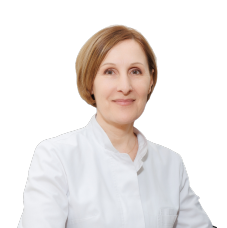 Deputy Head Physician for Laboratory Work, Candidate of Medical Sciences
Deputy Head Physician for Laboratory Work, Candidate of Medical Sciences Galina A. RachkovaChief Medical Nurse
Galina A. RachkovaChief Medical Nurse Andrey N. MamaevDirector of the Altai Branch of the NMRC for Hematology, Doctor of Medical SciencesReception: +7 (3852) 689-800656024 Barnaul, Lyapidevsky St., 1
Andrey N. MamaevDirector of the Altai Branch of the NMRC for Hematology, Doctor of Medical SciencesReception: +7 (3852) 689-800656024 Barnaul, Lyapidevsky St., 1 Igor A. OlkhovskiyDirector of the Krasnoyarsk Branch of the NMRC for Hematology, Candidate of Medical SciencesReception: +7 (391) 290-55-13E-mail: krashemcenter@mail.ru660036, Krasnoyarsk, Akademgorodok, 15а
Igor A. OlkhovskiyDirector of the Krasnoyarsk Branch of the NMRC for Hematology, Candidate of Medical SciencesReception: +7 (391) 290-55-13E-mail: krashemcenter@mail.ru660036, Krasnoyarsk, Akademgorodok, 15а Department of Surgery
Department of Surgery Department of Hematology and Chemotherapy of Orphan Diseases
Department of Hematology and Chemotherapy of Orphan Diseases Hematology Day Hospital for Patients with Hereditary Metabolic Diseases
Hematology Day Hospital for Patients with Hereditary Metabolic Diseases Division of Microbiology and Antimicrobial Therapy
Division of Microbiology and Antimicrobial Therapy Department of Traumatology and Reconstructive Orthopedics for Patients with Hemophilia
Department of Traumatology and Reconstructive Orthopedics for Patients with Hemophilia Laboratory for the Study of Mental and Neurological Disorders in Diseases of the Blood System
Laboratory for the Study of Mental and Neurological Disorders in Diseases of the Blood System Office of Endoscopy
Office of Endoscopy Department of Radiology
Department of Radiology Office of Magnetic Resonance Imaging
Office of Magnetic Resonance Imaging Laboratory of Karyology
Laboratory of Karyology Department of Pathology
Department of Pathology Laboratory for Immunophenotyping Blood and Bone Marrow CellsDepartment of Surgery
Laboratory for Immunophenotyping Blood and Bone Marrow CellsDepartment of Surgery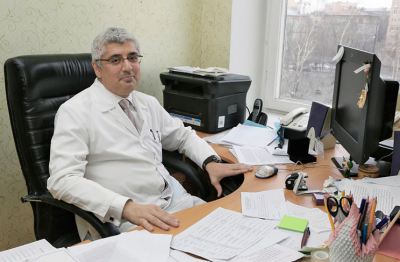
The head of the department is Karen I . Danishyan , Doctor of Medical Sciences, surgeon.
Since 2012, the department has been headed by Doctor of Medical Sciences, Karen I. Danishyan.
The department’s main areas of work include:
- minimally invasive therapeutic and diagnostic interventions in patients with pathology of the blood system
- endoscopic diagnosis of specific lesions of the mediastinum, lungs and abdominal organs in hematological patients
- diagnostics and surgical tactics for urgent diseases of the abdominal cavity in hematology practice
The department is deployed for 40 beds. The patient population is very diverse. These are patients with diseases of the blood system requiring splenectomy, as well as patients with a general surgical profile. Hematological patients are admitted to the department on referral from the outpatient and hematological departments of the NMRC for Hematology, the hematological departments of Moscow city hospitals, and regional and republican hematological centers. Patients with a general surgical profile are referred by the district polyclinics of the city, medical units, therapeutic departments of Moscow city hospitals, anti- tuberculosis dispensaries, district oncologists, as well as by referral from the Ministry of Health of the Russian Federation.
Department of Hematology and Chemotherapy of Orphan Diseases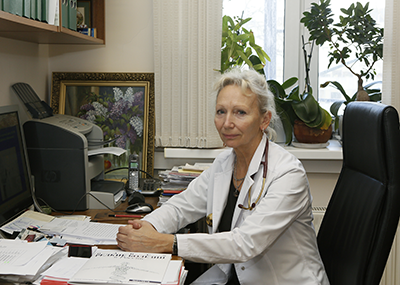
The head of the department is hematologist, Elena A. Lukina,Doctor of Medical Sciences, professor, hematologist of the highest category, expert of the Ministry of Health of Russia, Roszdravnadzor and the Russian Academy of Sciences, member of the Expert Council on Rare Diseases of the Committee on Health Protection of the State Duma of the Russian Federation.
The list of diseases and syndromes with which adult patients are referred for examination and treatment to the department:
- Gaucher disease and other lysosomal storage diseases
- hereditary hemolytic anemia, including beta-thalassemia
- autoimmune hemolytic anemia
- paroxysmal nocturnal hemoglobinuria
- hereditary and acquired hemochromatosis;
- xtrahepatic portal hypertension as a result of portal system thrombosis
- histiocytosis from Langerhans cells and other rare forms of macrophage/histiocyte diseases (xantogranuloma, Erdheim-Chester disease)
- acute porphyrias
- systemic mastocytosis
- secondary cytopenia associated with liver pathology
- immune thrombocytopenia, resistant forms
Hematology Day Hospital for Patients with Hereditary Metabolic Diseases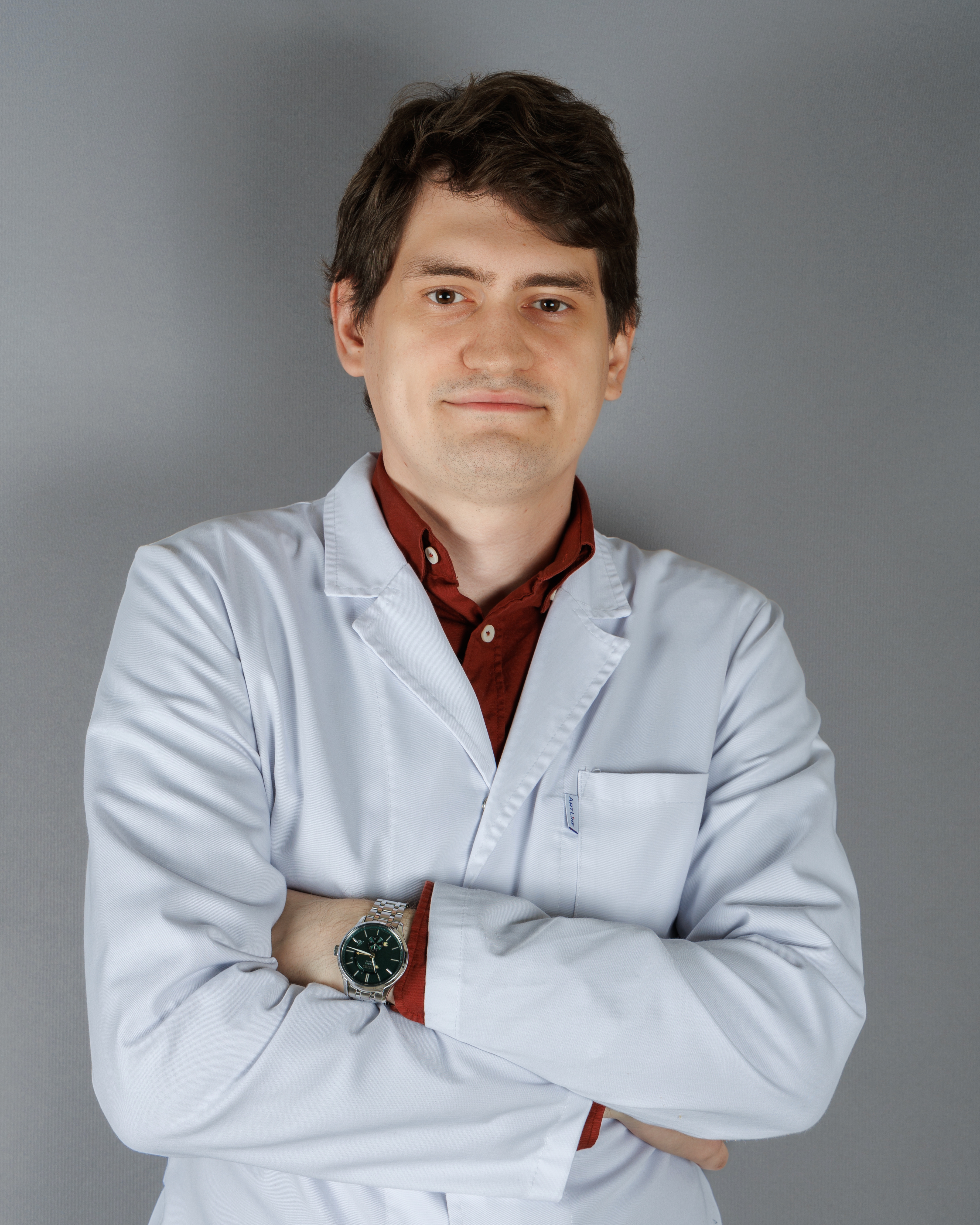
The head of the day hospital is hematologist, Vitaly D. Latyshev.
The department was established in April 2022 and functions as part of the Division of Orphan Diseases. The main focus of work is the diagnosis and treatment of congenital and acquired non-tumor pathology of the blood system, rare diseases.
The department performs diagnostics and treatment of diseases such as:
- hereditary hemolytic anemia (including beta-thalassemia, sickle cell anemia and other congenital hemoglobinopathies and membranopathies);
- autoimmune hemolytic anemia;
- paroxysmal nocturnal hemoglobinuria;
- hereditary and acquired hemochromatoses;
- histiocytosis from Langerhans cells and other rare histiocytoses (xanthogranuloma, Erdheim—Chester disease);
- systemic mastocytosis;
- congenital and acquired cytopenic syndromes;
- immune thrombocytopenia (resistant forms).
Close interaction with the round-the-clock hospital of the Department of Orphan Diseases allows us to maintain continuity in therapy and subsequent dispensary observation of patients after the inpatient treatment stage. The main focus of the department is to improve the methods of diagnosis and treatment of non-tumor diseases of the blood system, as well as the introduction of new treatment methods into clinical practice. The department conducts Russian and international clinical trials of new drugs and methods of treatment of patients with orphan diseases.
Division of Microbiology and Antimicrobial Therapy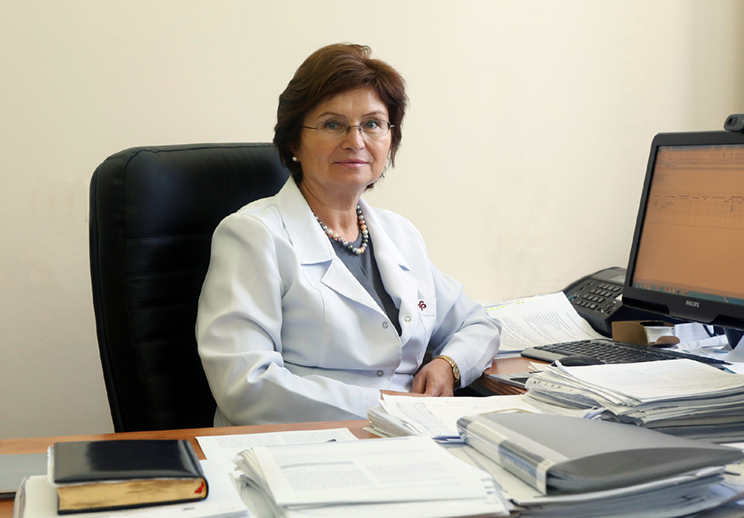
Galina A. Klyasova, Professor, Doctor of Medical Sciences
The division includes:
The division was established in 2000 as the Laboratory of Clinical Bacteriology, Mycology and Antibiotic Therapy. The main goal of the division is the diagnosis of bacterial and fungal infections.
Scientific and clinical work is carried out in several areas:
Department of Traumatology and Reconstructive Orthopedics for Patients with Hemophilia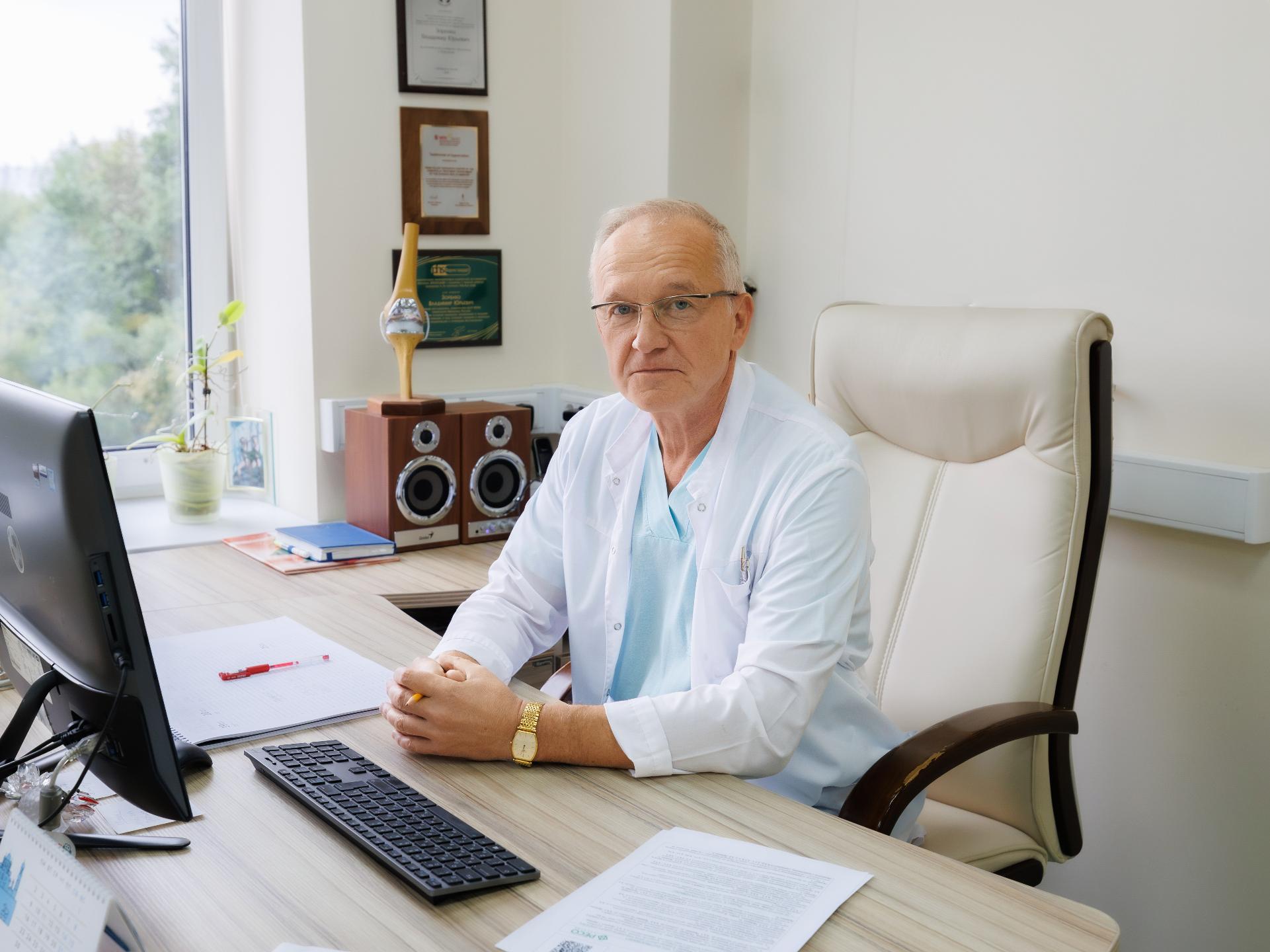
Head of the department- orthopedic traumatologist, Vladimir Y. Zorenko, Doctor of Medical Sciences.
In 1988, Professor Y.N. Andreev, an honored scientist, established a reconstructive and restorative Department of Orthopedics at the Institute. Under the leadership of Y.N. Andreev (from 1988 to 2005), a highly professional school of surgeons was formed, which substantiated the most important provisions of hematological traumatology and orthopedics. For the first time in our country, surgeries for prosthetics of large joints began to be performed in patients with hemophilia and other blood clotting diseases.
In 2009, Doctor of Medical Sciences, Professor, doctor of the highest category, Vladimir Y. Zorenko, became head of the department.
Since 1995, the department has regularly conducted clinical trials of drugs used to treat hemophilia and other coagulopathies.
Laboratory for the Study of Mental and Neurological Disorders in Diseases of the Blood System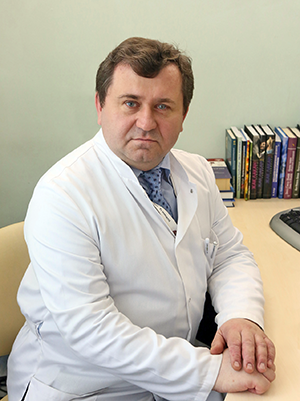
The head of the laboratory is psychiatrist, Dmitry E. Vybornykh, Doctor of Medical Sciences.
Since 2000, the NMRC for Hematology has been actively working on the study of mental disorders in patients of the Center, both in the study of diseases associated with the somatogenic or nosogenic influence of hematological pathology, and those unrelated to it, as well as the development of therapeutic methods for such disorders. Representatives of the Center participate in domestic and foreign conferences devoted to the issues of psycho- oncology and psycho-hematology and regularly publish papers in domestic and foreign publications.
In 2012, the NMRC for Hematology created a special group for the study of mental disorders in diseases of the blood system. This group was reorganized in 2016 into the Laboratory for the Study of Mental and Neurological Disorders in Diseases of the Blood System. The laboratory is designed to conduct systematic research in this area, which is of great scientific and applied importance.
Among the main research areas of the department:
Office of Endoscopy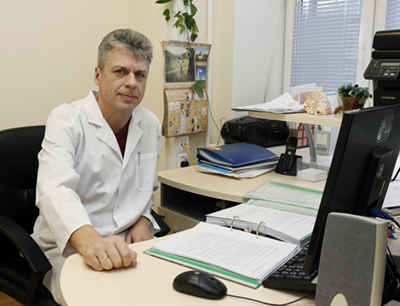
Head of the office- endoscopist, Vladimir A. Makhinya
The office is part of the Department of Endoscopy and Office of Ultrasound and Functional Diagnostics.
In the 1970s, an endoscopic service was organized as a part of the Department of Surgery under the leadership of Prof. V.A. Klimansky. At that time, doctors like I.A. Zagrekov, V.S. Shavlokhov and A.V. Tochenov actively worked on mastering this new method for the whole of the country. Since 2002, with the arrival of doctors V.A. Makhinya and O.Y. Popova, the number of endoscopic examinations have increased significantly. In 2011, the endoscopic service became the Department of Endoscopy and in 2022, the Department of Endoscopy was transformed into the Department of Endoscopy & Office of Ultrasound and Functional Diagnostics.
In close cooperation with the Intensive Care Unit, under the leadership of G.M. Galstyan, methods of performing bronchoalveolar lavages were developed and improved, the technique of installing percutaneous endoscopic gastrostomy and the technique of installing tracheostomy by puncture dilation method were mastered. Currently, the department is equipped with modern digital equipment with high resolution (HD quality), the latest generation mounts, an electrosurgical unit, and an argonoplasmic coagulation apparatus, which allows for a wide range of diagnostic and therapeutic capabilities of the department, as well as the possibility of surgical endoscopy.
Department of Radiology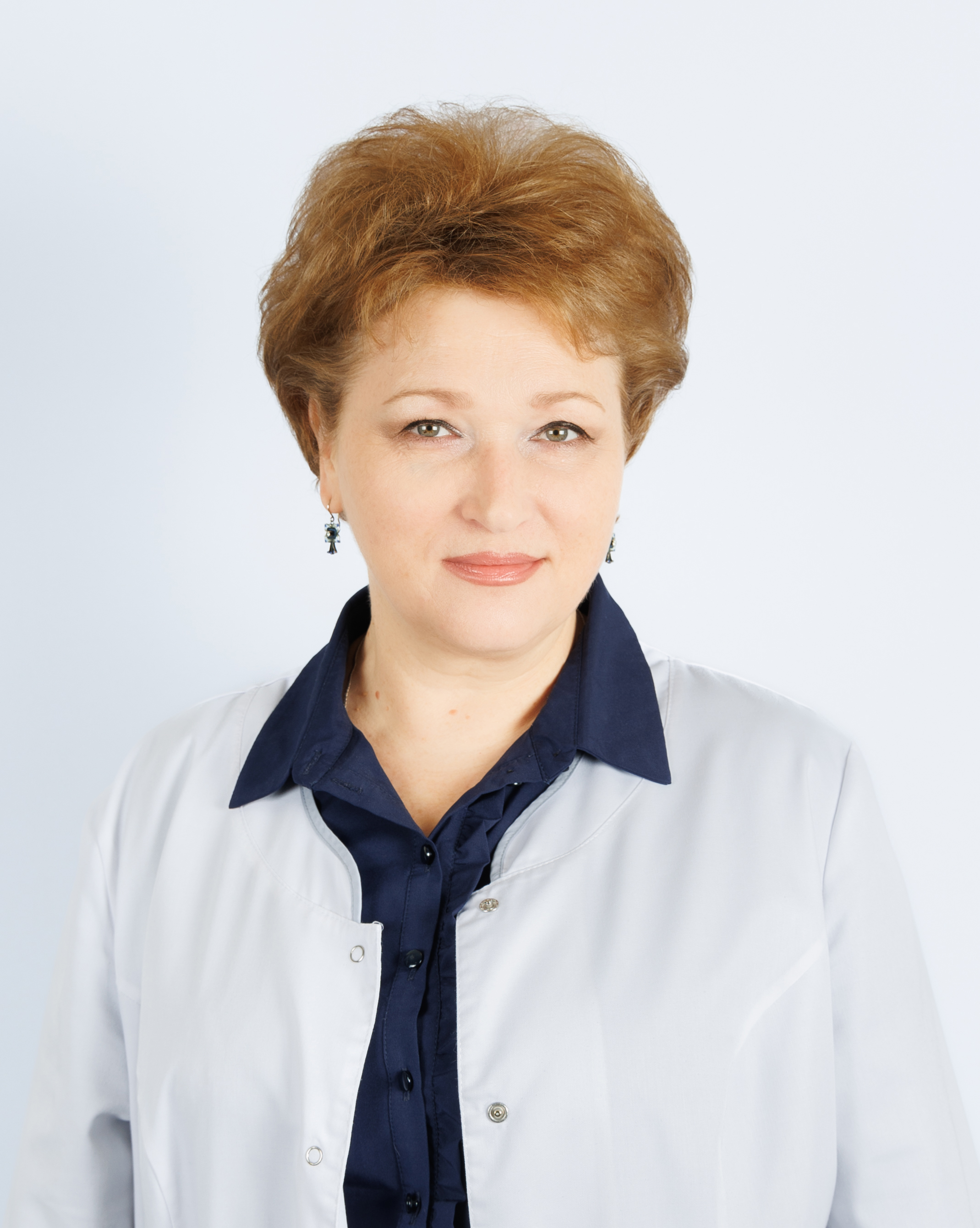
Head of the department- radiologist, Irina E. Kostina, Candidate of Medical Sciences
The department includes:
The department was formed in 2022 by combining Department of Radiology and Computed Tomography and the Department of Magnetic Resonance Imaging and Ultrasound Diagnostics.
The Department of Radiology at the NMRC for Hematology has been in existence since 1946. The first head of the department was Professor, Ella Novikova, who studied the features of radiological manifestations of pathology of bones and chest organs in blood diseases compared to the pathomorphological picture. From 1988 to 2012, the department was headed by Doctor of Medical Sciences, Lev N. Gotman, who developed a technique for angiographic embolization of the arteries of the spleen in hemoblastosis. During the period of his leadership, the department was re-equipped with modern X-ray diagnostic equipment, computer tomography and magnetic resonance imaging rooms, and a remote gamma therapy room. Since 2012, the department has been headed by Candidate of Medical Sciences, Irina E. Kostina.
Office of Magnetic Resonance Imaging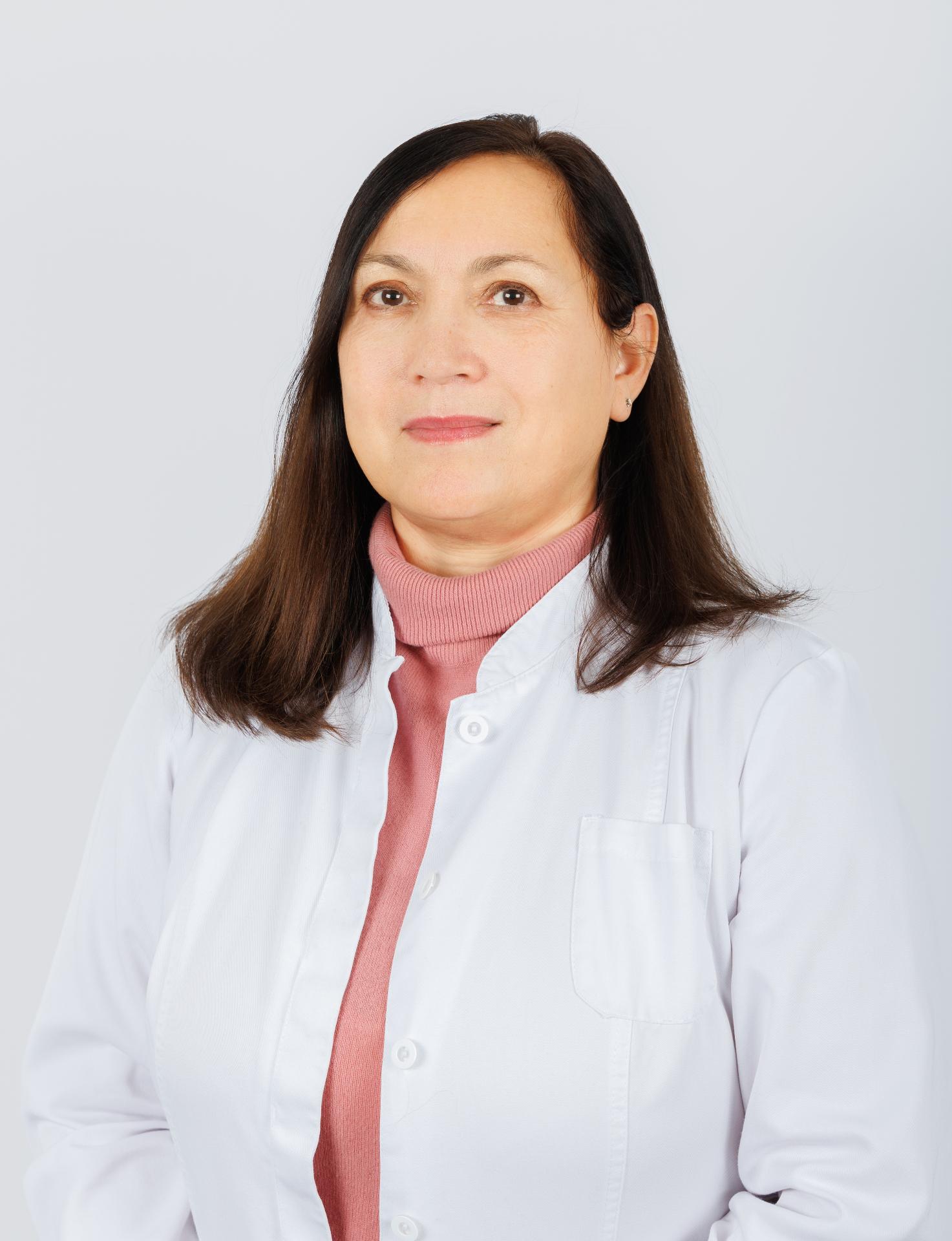
The head of the office is Galina A. Yatsyk, radiologist, Candidate of Medical Sciences, member of the ESR, MRB RSR (Moscow Regional Branch of the Russian Society of Radiologists) , RSR (Russian Society of Radiology)
The office functions as part of the Department of Radiology.
The office was transformed from the Department of Magnetic Resonance Imaging and Ultrasound Diagnostics established on August 1, 2013, and since 2022 has been a part of the Department of Radiology.
The office carries out examinations of patients with hemoblastosis, hematopoiesis pathology, and orphan diseases. The whole range of standard studies and developed examination protocols in the NMRC for Hematology are performed by the office. MRI studies of the whole body, according to protocols to exclude hemoblastosis, to quantify iron overload of parenchymal organs, in Gaucher's disease, and abdominal organs with intravenous bolus contrast enhancement, including primovist are carried out. Office employees participate in the performance of state tasks and scientific activities and are experienced at operating modern equipment: Philips Ingenia magnetic resonance tomograph with 1.5 tesla magnetic field induction.
Laboratory of Karyology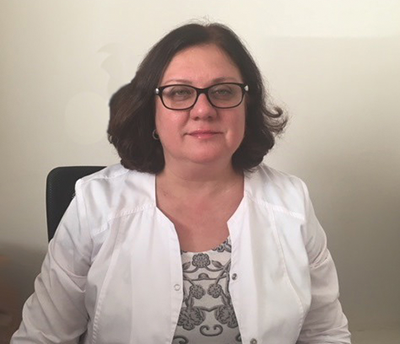
Head of the laboratory- doctor/aboratory geneticist, Tatiana N. Obukhova, Candidate of Medical Sciences
The Laboratory of Karyology was established at the Hematological Research Center of the Russian Academy of Medical Sciences, headed by Academician Andrei I. Vorobyov in 1988 for the practical implementation of cytogenetic research methods in clinical hematological practice, first on the scale of what is now the NMRC for Hematology, and then throughout the country. The ideological inspirer for the organization of the laboratory was the outstanding Russian hematologist Marina Davydovna Brilliant. The first head of the laboratory (1988- 2013) was Professor Elena V. Domracheva. Since 2013, the laboratory has been headed by T.N. Obukhova.
The main focus of the Laboratory of Karyology is the study of the genetic structure of tumor diseases of the blood system - the determination of the main molecular cytogenetic events underlying the initiation and progression of tumors as well as the development and improvement of methods for the molecular cytogenetic diagnosis of leukemia and lymphomas with the goal of identifying diagnostic chromosomal markers and cytogenetic disease prognosis factors for the selection of differentiated therapy and evaluation of the treatment effectiveness.
The laboratory specializes in cytogenetic and molecular-cytogenetic diagnostics of acute leukemia, myelodysplastic syndromes, chronic myeloid leukemia and other myeloproliferative diseases, chronic lymphocytic leukemia, lymphomas, multiple myeloma, and myeloid and lymphatic tumors occurring with eosinophilia. In methods of standard cytogenetic study (karyotyping) and molecular cytogenetic study (fluorescent in situ hybridization - FISH) of bone marrow cells and peripheral blood, tumor biopsy specimens are used. FISH is also performed on archival material: paraffin blocks and biopsy prints, bone marrow and blood smears. In addition, high-resolution methods for identifying complex structural rearrangements with multicolored coloration of chromosomes are used - M-FISH and M-BAND. For patients with aplastic anemia, myelodysplastic syndromes and acute leukemias, a diepoxybutane test (DEB test) to detect chromosomal instability and Fanconi anemia is performed. In the framework of scientific research, a modern high-resolution molecular-cytogenetic method is used – comparative genomic hybridization on DNA microarrays (comparative genomic hybridization, array CGH) in order to identify hidden chromosomal aberrations and determine prognostically significant markers of onco-hematological diseases.
Department of Pathology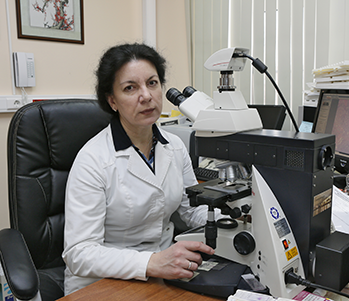
The head of the department is pathologist Alla M. Kovrigina, Doctor of Biological Sciences
The main areas of work of the Department of Pathology are the diagnosis of tumor and non- tumor diseases of lymphoid tissue and the blood system based on the study of bone marrow trephine biopsies and biopsy material of the lymph nodes, obligate hematopoietic organs, and lymphoid tissues of other localizations using histological, histochemical, immunohistochemical, in situ hybridization research methods. The department performs the functions of the Reference Center of the Ministry of Health of the Russian Federation in the field of hematology and conducts a large amount of consultative diagnostic work on the study of biopsy material (paraffin blocks, finished preparations and biopsy/surgical material sent in 10% neutral formalin) from various cities, regions of the Russian Federation, and a number of CIS republics.
Research is carried out on the material of bone marrow trephine biopsies, biopsy material obtained from cor-biopsies, excisional and incisional biopsies of the lymph nodes, endoscopic studies (including thoracoscopy, laparoscopy), and surgical material, in particular, thoracotomies, laparotomies and splenectomies. The department provides intraoperative (urgent) histological diagnostics for biopsies of neoplasms of retroperitoneal localization, mediastinum, lungs, and lymph nodes.
The development of criteria for the complex differential diagnosis of B- and T-lymphomas, Hodgkin's lymphoma, Ph-negative myeloproliferative diseases, myelodysplastic syndromes, and hypoplastic conditions of the hematopoietic tissue are priority scientific areas for the Department of Pathology.
Laboratory for Immunophenotyping Blood and Bone Marrow Cells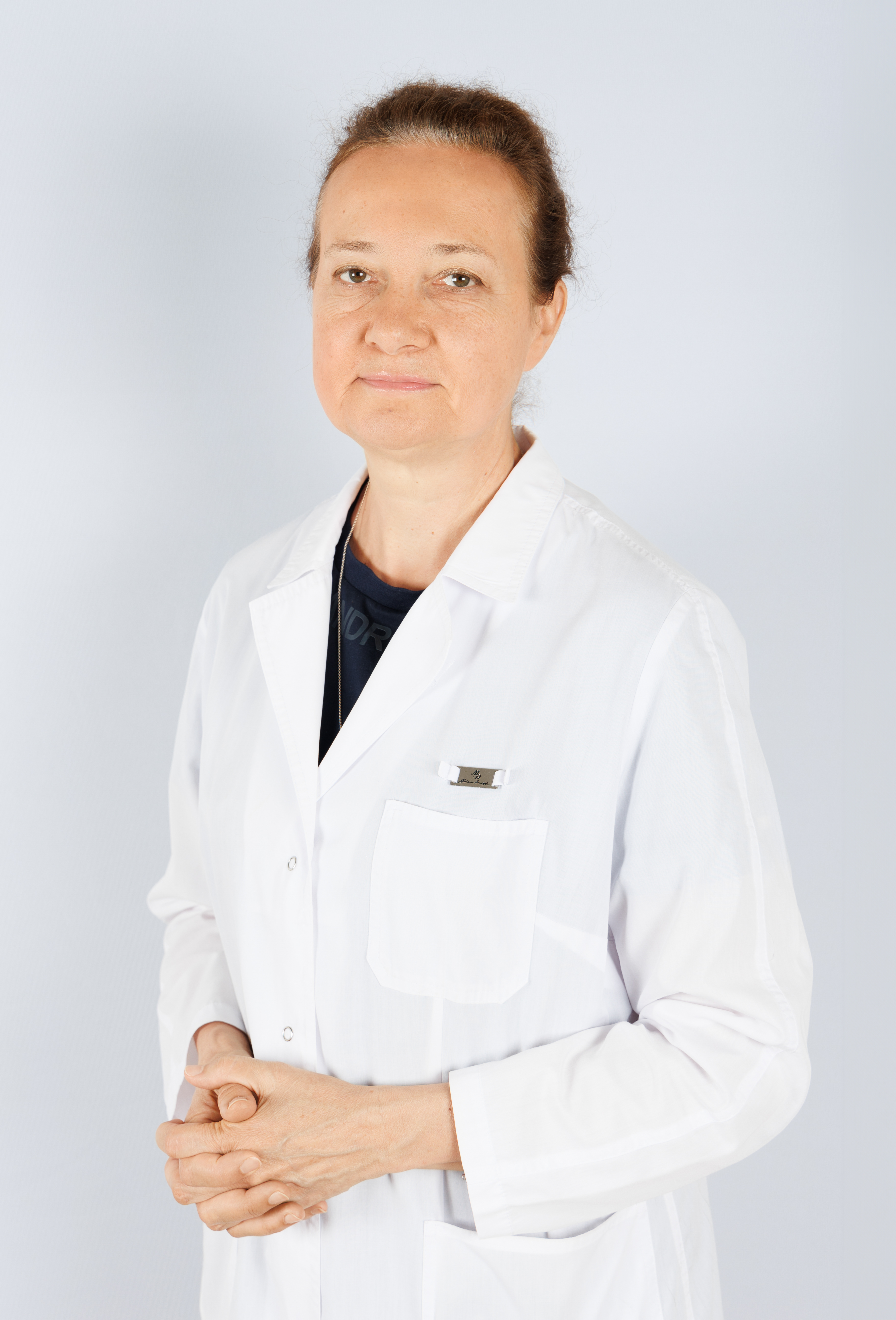
Head of the laboratory - hematologist Irina V. Galtseva, Candidate of Medical Sciences.
The laboratory was organized on March 1, 2013
Immunophenotyping of cells, carried out using flow cytometry, is widely used in clinical diagnostic and scientific research. A distinctive feature of this analysis is the ability to determine the phenotype of single cells. The method is based on the use of monoclonal antibodies to differentiation antigens, the combination of which makes it possible to detect various cell populations. The collection of antigens on the cell surface is called an immunophenotype. Over the past 20 years, flow cytometry has become an integral tool in the diagnosis of various hematological diseases, in particular lymphomas, leukemias, plasma cell neoplastic diseases, paroxysmal nocturnal hemoglobinuria (APG), etc. Based on the data on the immunophenotype and the analysis of a large number of cells, flow cytometry makes it possible to find extremely rare cell subpopulations.
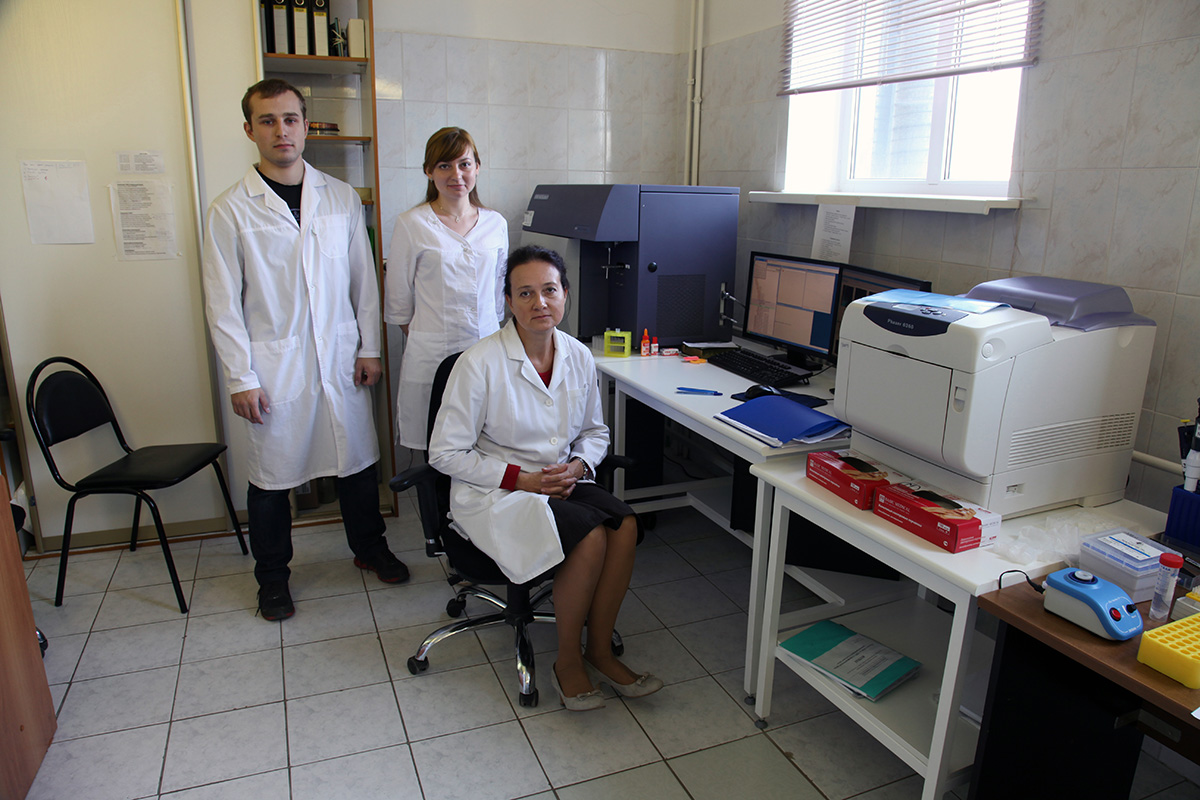 More Information
More InformationThe decision to establish the Institute of Blood Transfusion was made by the USSR Labor and Defense Council on February 26, 1926. Specialized institutions of a similar profile did not exist at that time, not only in the USSR, but also in the rest of the world.
The organizer of this institute was an outstanding figure of the era. He was a versatile, educated, and gifted man: doctor, economist, naturalist, revolutionary, and science fiction writer, Alexander Alexandrovich Bogdanov (Malinovsky) .
In those years, the work of the Institute was organized by famous domestic scientists and doctors: S.L. Maloletkov, I.I. Sobolev, D.A. Gudim-Levkovich, H.H. Vlados, M.P. Konchalovsky.
They set the foundations of modern production and clinical transfusion (rules for blood preparation, examination of donors, production of group sera, indications for blood transfusion).
All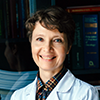 Elena N. ParovichnikovaHeading the NMRC for Hematology since 2021
Elena N. ParovichnikovaHeading the NMRC for Hematology since 2021Doctor of Medical Sciences, labor veteran, Honored Healthcare Worker of the Russian Federation, Excellent Healthcare Worker, chief freelance specialist hematologist of the Russian Ministry of Health. A leading specialist in the field of clinical and experimental hematology and hematopoietic cell transplantation. Coordinator of the Russian Research Group of Hematology Centers, initiator and coordinator of a multicenter study on the treatment of acute leukemia.
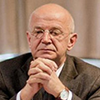 Valeriy G. SavchenkoHeaded the Center: 2011- 2021
Valeriy G. SavchenkoHeaded the Center: 2011- 202108.01.1952—25.07.2021. Academician of the Russian Academy of Medical Sciences, Doctor of Medical Sciences, Professor, Honored Health Worker of the Russian Federation, recipient of theExcellence in Health Care award. Chief Freelance Specialist hematologist of the Ministry of Health of Russia, President of the National Hematological Society, member of the American Association of Hematologists, organizer and chairman of the organizing committee of the International Hematological School, “Leukemia and Lymphoma. Therapy and Basic Research,” member of the International Committee of the Association for Comparative Research in Leukemia, Editor-in-Chief of the journal, “Hematology and Transfusiology,” leader of the development of diagnostic algorithms and protocols for the treatment of diseases in the blood system.
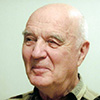 Andrey I. VorobyovHeaded the Institute: 1987 to 2011
Andrey I. VorobyovHeaded the Institute: 1987 to 201101.11.1928—15.06.2020. Academician of the Russian Academy of Medical Sciences and the Russian Academy of Sciences, Doctor of Medical Sciences, Professor. He gave a classical description of the pathogenesis of radiation sickness, created the world’s first only integrated system of biological dosimetry, which had a strong impact on the elimination of the consequences of the accident at the Chernobyl nuclear power plant.
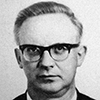 Anatoly G. FedotenkovHeaded the Institute: 1982 to 1987
Anatoly G. FedotenkovHeaded the Institute: 1982 to 19871919—1991. Transfusiologist, cryobiologist, health care organizer, Doctor of Medical Sciences (1967), Professor (1981), Honored Scientist of the RSFSR. He was one of the first in the USSR to elaborate on problem of tissue preservation.
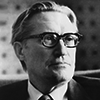 Oleg K. GavrilovHeaded the Institute: 1972 to 1982
Oleg K. GavrilovHeaded the Institute: 1972 to 198201.01.1922—03.10.2008. Academician of the Russian Academy of Medical Sciences, Doctor of Medical Sciences, professor. He is the creator of the doctrine of the aggregate state of blood. Under his leadership a new direction in the science of blood was developed-hemoaggregatology and blood surgery
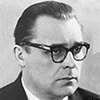 Anatoly E. KiselevHeaded the Institute: 1961 to 1972
Anatoly E. KiselevHeaded the Institute: 1961 to 19721913—04.01.1980 In 1936 A.E. Kiselev graduated with honors from the Smolenks Medical Institute. He is the author of 15 scientific works, 3 monograph, and 14 inventions. He is responsible for organizing the world’s first front-line mobile blood transfusion stations.
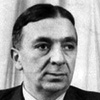 Andrey A. BagdasarovHeaded the Institute: 1932 to 1961
Andrey A. BagdasarovHeaded the Institute: 1932 to 196104[16].02.1897—26.08.1961. Full member of the USSR Academy of Medical Sciences, professor, Chief Hematologist of the USSR Ministry of Health. He was the first to introduce the method of stored blood transfusion into worldwide medical practice.
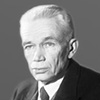 Alexander A. BogomoletsHeaded the Institute: 1928 to 1931
Alexander A. BogomoletsHeaded the Institute: 1928 to 193112[24].05.1881—19.07.1946. Pathophysiologist, Academician (1932) and Vice-President of the USSR Academy of Sciences (1942). He is considered one of the founders of the Institute. Bogomolets developed a unique method for the preservation of donor blood and established the universal donor nature of the first blood group.
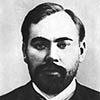 Alexander A. BogdanovHeaded the Institute: 1926-1928
Alexander A. BogdanovHeaded the Institute: 1926-192810[22].08.1873—7.04.1928. Physician, economist, philosopher, politician, natural scientist, founder and head of the world’s first Institute of Blood Transfusion.
NMRC for Hematology Employee Awards Alexander E. Grachev —hematologist of the Department of Chemotherapy of Hematological Diseases, Candidate of Medical Sciences
Alexander E. Grachev —hematologist of the Department of Chemotherapy of Hematological Diseases, Candidate of Medical Sciences Alexander V. Grzhimolovsky —head of the operating unit- doctor-surgeon, Candidate of Medical Sciences
Alexander V. Grzhimolovsky —head of the operating unit- doctor-surgeon, Candidate of Medical Sciences Alexandra A. Akhremtsova —leading specialist of the Donation Development Group of the Department of Blood Transfusion
Alexandra A. Akhremtsova —leading specialist of the Donation Development Group of the Department of Blood Transfusion Alexandra M. Kremenetskaya —hematologist at the Department of Intensive High-dose Hemoblastosis Chemotherapy with Round-the-Clock and Day Hospitals
Alexandra M. Kremenetskaya —hematologist at the Department of Intensive High-dose Hemoblastosis Chemotherapy with Round-the-Clock and Day Hospitals Alina V. Kokhno —Head of the department — hematologist of the Clinical and Diagnostic Department of Hematology and Myeloid Neoplasia, Candidate of Medical Sciences
Alina V. Kokhno —Head of the department — hematologist of the Clinical and Diagnostic Department of Hematology and Myeloid Neoplasia, Candidate of Medical Sciences Alla G. Stremoukhova —doctor of clinical laboratory diagnostics of the Laboratory of Transfusiological Immunohematology
Alla G. Stremoukhova —doctor of clinical laboratory diagnostics of the Laboratory of Transfusiological Immunohematology Alla Yu. Demyanishina —nurse of the Intensive High-dose Hemoblastosis Chemotherapy Department
Alla Yu. Demyanishina —nurse of the Intensive High-dose Hemoblastosis Chemotherapy Department Aminat U. Magomedova —leading researcher of the Division of Lymphoproliferative Diseases, Doctor of Medical Sciences
Aminat U. Magomedova —leading researcher of the Division of Lymphoproliferative Diseases, Doctor of Medical Sciences Anahit L. Melikyan —Head of the department — hematologist of the Department for the Standardization of Treatment Methods of Hematological Diseases
Anahit L. Melikyan —Head of the department — hematologist of the Department for the Standardization of Treatment Methods of Hematological Diseases Anastasia B. Strakhovskaya —nurse-anesthetist of the Department of Anesthesiology and Intensive Care with General Anesthesia Room
Anastasia B. Strakhovskaya —nurse-anesthetist of the Department of Anesthesiology and Intensive Care with General Anesthesia Room Andrey I. Vorobyov —hematologist, transfusiologist, Academician of the Russian Academy of Sciences, Professor, Doctor of Medical Sciences, Director of the NMRC for Hematology from 1987 to 2011.
Andrey I. Vorobyov —hematologist, transfusiologist, Academician of the Russian Academy of Sciences, Professor, Doctor of Medical Sciences, Director of the NMRC for Hematology from 1987 to 2011. Andrey N. Sokolov —senior researcher of the Hemoblastosis Chemotherapy, Hematopoietic Depression and Bone Marrow Transplantation Research Sector, hematologist of the Department Hemoblastosis and Hematopoietic Depressin Chemotherapy with Bone Marrow and Hematopoietic Stem Cell Transplantation Unit, Candidate of Medical Sciences
Andrey N. Sokolov —senior researcher of the Hemoblastosis Chemotherapy, Hematopoietic Depression and Bone Marrow Transplantation Research Sector, hematologist of the Department Hemoblastosis and Hematopoietic Depressin Chemotherapy with Bone Marrow and Hematopoietic Stem Cell Transplantation Unit, Candidate of Medical Sciences Andrey P. Momot —Director of the Altai Branch of the Federal State Budgetary Institution "National Medical Research Center for Hematology" of the Ministry of Health of the Russian Federation, professor, Doctor of Medical Sciences
Andrey P. Momot —Director of the Altai Branch of the Federal State Budgetary Institution "National Medical Research Center for Hematology" of the Ministry of Health of the Russian Federation, professor, Doctor of Medical Sciences Anna A. Kireeva —doctor of ultrasound diagnostics in the Office of Ultrasound and Functional Diagnostics
Anna A. Kireeva —doctor of ultrasound diagnostics in the Office of Ultrasound and Functional Diagnostics Anna A. Sidorova —ward nurse in the Department of Chemotherapy of Lymphatic Tumors with Bone Marrow and Hematopoietic Stem Cell Transplantation Unit with Day HospitalAnahit L. Melikyan — Head of the department — hematologist of the Department for the Standardization of Treatment Methods of Hematological Diseases
Anna A. Sidorova —ward nurse in the Department of Chemotherapy of Lymphatic Tumors with Bone Marrow and Hematopoietic Stem Cell Transplantation Unit with Day HospitalAnahit L. Melikyan — Head of the department — hematologist of the Department for the Standardization of Treatment Methods of Hematological Diseases
For merits in the field of healthcare and many years of conscientious work (Order of the Ministry of Health of the Russian Federation No. 1002-п of 24.11.2016)

For many years of conscientious work and in connection with the celebration of the Day of the Medical Worker (Order of the Ministry of Health of the Russian Federation No. 995-п of 13.06.07)
Andrey N. Sokolov — senior researcher of the Hemoblastosis Chemotherapy, Hematopoietic Depression and Bone Marrow Transplantation Research Sector, hematologist of the Department Hemoblastosis and Hematopoietic Depressin Chemotherapy with Bone Marrow and Hematopoietic Stem Cell Transplantation Unit, Candidate of Medical Sciences
For merits in the field of healthcare and many years of conscientious work (Order of the Ministry of Health of the Russian Federation No. 465-п of 23.05.2014)
Andrey P. Momot — Director of the Altai Branch of the Federal State Budgetary Institution "National Medical Research Center for Hematology" of the Ministry of Health of the Russian Federation, professor, Doctor of Medical Sciences
For services to the development of healthcare, medical science, training of qualified specialists and many years of conscientious work (Decree of the President of the Russian Federation No. 436 of 25.09.2017)
 “Hematology and transfusiology”
“Hematology and transfusiology” Diagnostic algorithms and treatment protocols for diseases of the blood system, vol 1, vol 2
Diagnostic algorithms and treatment protocols for diseases of the blood system, vol 1, vol 2 “Bone marrow transplantation: what does the patient need to know?”
“Bone marrow transplantation: what does the patient need to know?” “National medical research center for hematology today”
“National medical research center for hematology today” “Protocols for the transplantation of allogeneic hematopoietic stem cells”
“Protocols for the transplantation of allogeneic hematopoietic stem cells” diagnostic algorithms and treatment protocols for diseases of the blood system, supplement
diagnostic algorithms and treatment protocols for diseases of the blood system, supplement 12.12.2025The Results of a Study on the Efficacy of Maintenance Therapy in Multiple Myeloma Presented at Orlando ConferenceThe 67th Annual ASH (American Society of Hematology) Meeting and Exposition was held from 6-9 December 2025 in Orlando, Florida, USA.
12.12.2025The Results of a Study on the Efficacy of Maintenance Therapy in Multiple Myeloma Presented at Orlando ConferenceThe 67th Annual ASH (American Society of Hematology) Meeting and Exposition was held from 6-9 December 2025 in Orlando, Florida, USA. 11.12.2025NMRC for Hematology of the Russian Ministry of Health Obtains International Food Safety Standards Compliance CertificateThe document confirms that the food safety management system implemented across the Center's catering enterprises fully complies with the stringent requirements of international and national standards:
11.12.2025NMRC for Hematology of the Russian Ministry of Health Obtains International Food Safety Standards Compliance CertificateThe document confirms that the food safety management system implemented across the Center's catering enterprises fully complies with the stringent requirements of international and national standards:
![]() 11.12.2025Poster Presentations from the NMRC for Hematology Featured at the 67th ASH Annual Meeting and ExpositionEmployees from the NMRC for Hematology of the Russian Ministry of Health presented poster reports at the 67th ASH Annual Meeting and Exposition in Orlando (USA).
11.12.2025Poster Presentations from the NMRC for Hematology Featured at the 67th ASH Annual Meeting and ExpositionEmployees from the NMRC for Hematology of the Russian Ministry of Health presented poster reports at the 67th ASH Annual Meeting and Exposition in Orlando (USA).
 19.11.2025Recipe for Beating Lymphoma: Faith, a Doctor, and a Sense of HumorTwenty-two years ago, civil engineer Olga Zudilova was confronted with a diagnosis of lymphoma. Thanks to the help of doctors at the NMRC for Hematology, she not only overcame the illness, but continues to build her life—full and vibrant.
19.11.2025Recipe for Beating Lymphoma: Faith, a Doctor, and a Sense of HumorTwenty-two years ago, civil engineer Olga Zudilova was confronted with a diagnosis of lymphoma. Thanks to the help of doctors at the NMRC for Hematology, she not only overcame the illness, but continues to build her life—full and vibrant.
 06.11.2025Get Treatment and Simply Live: for the Children, for the DreamIn May, Marina Khmyz was presented a white violin, and in the summer, a lymph node began to grow on her neck. The diagnosis- Burkitt's lymphoma. Marina overcame, and took part in the project “I Will Live!” to show that dreams do indeed come true!
06.11.2025Get Treatment and Simply Live: for the Children, for the DreamIn May, Marina Khmyz was presented a white violin, and in the summer, a lymph node began to grow on her neck. The diagnosis- Burkitt's lymphoma. Marina overcame, and took part in the project “I Will Live!” to show that dreams do indeed come true! 31.10.2025CAR-T in Russia: From the First Steps to Established PracticeOn the 6th of November 2025, the III Annual Scientific and Practical Conference “CAR-T Academy. Day +2 of CAR T-cell Therapy” will be held in Moscow.
31.10.2025CAR-T in Russia: From the First Steps to Established PracticeOn the 6th of November 2025, the III Annual Scientific and Practical Conference “CAR-T Academy. Day +2 of CAR T-cell Therapy” will be held in Moscow.
 27.10.2025Plan: “Live!”Yulia Moskovskaya's story is an example of incredible strength of spirit. Faced with Hodgkin's lymphoma, she didn't let fear get the better of her. Instead of panicking, she chose the path of trusting her doctors, supporting fellow patients, and unquenchable faith in her future.
27.10.2025Plan: “Live!”Yulia Moskovskaya's story is an example of incredible strength of spirit. Faced with Hodgkin's lymphoma, she didn't let fear get the better of her. Instead of panicking, she chose the path of trusting her doctors, supporting fellow patients, and unquenchable faith in her future. 24.10.2025The Chemistry of Life: How I Survived Lymphoma and Gave Birth to a SonAt 18, while studying at university, Daria Arefyeva learned she had primary mediastinal large B-cell lymphoma. But she found the strength not only to start a new life but also to help others. Today, Daria is a mother, the author of a popular Telegram channel for moms, and a participant in the project “I Will Live!”.
24.10.2025The Chemistry of Life: How I Survived Lymphoma and Gave Birth to a SonAt 18, while studying at university, Daria Arefyeva learned she had primary mediastinal large B-cell lymphoma. But she found the strength not only to start a new life but also to help others. Today, Daria is a mother, the author of a popular Telegram channel for moms, and a participant in the project “I Will Live!”. 22.10.2025Art VS. Cancer: How Artist Vladislav Tumanov Found a Source of InspirationVladislav Tumanov – an artist, singer, and composer – went through the difficult trial of a cancer diagnosis: hairy cell leukemia. Today, in stable remission, he not only continues to create but also helps others find the strength to fight, including through his participation in the project “I Will Live!”.
22.10.2025Art VS. Cancer: How Artist Vladislav Tumanov Found a Source of InspirationVladislav Tumanov – an artist, singer, and composer – went through the difficult trial of a cancer diagnosis: hairy cell leukemia. Today, in stable remission, he not only continues to create but also helps others find the strength to fight, including through his participation in the project “I Will Live!”. 17.10.2025Three Key Words: “I’ll Take You”Svetlana Lomanuk from Kaliningrad placed her complete trust in her doctor, Lilia Gamilevna Gorenkova, during her illness. This helped her get back on her feet and return to her family. Liliia Gamilevna and Svetlana both took part in the project “I Will Live!”.
17.10.2025Three Key Words: “I’ll Take You”Svetlana Lomanuk from Kaliningrad placed her complete trust in her doctor, Lilia Gamilevna Gorenkova, during her illness. This helped her get back on her feet and return to her family. Liliia Gamilevna and Svetlana both took part in the project “I Will Live!”. Valentina20 November 2025Gratitude to the hematologists S.K. Kravchenko and E.A. AtroshenkoRead the entire reviewCollapseI would like to thank Sergey Kirillovich Kravchenko for his professionalism, patience, attention and hard work in my treatment. I would also like to thank Elizaveta Andreevna Atroshenko, who energizes me at my appointments. Good health to all!
Valentina20 November 2025Gratitude to the hematologists S.K. Kravchenko and E.A. AtroshenkoRead the entire reviewCollapseI would like to thank Sergey Kirillovich Kravchenko for his professionalism, patience, attention and hard work in my treatment. I would also like to thank Elizaveta Andreevna Atroshenko, who energizes me at my appointments. Good health to all! Artyom Vorobyov1 November 2025Gratitude to hematologists N.G. Gabeeva, E.E. Zvonkov and A.A. IevlevaRead the entire reviewCollapseI would like to express my deepest gratitude for saving my life. I had stage 4 Berkit lymphoma with internal bleeding. The size of the tumor was 20 cm. When I was hospitalized, I was practically unable to walk. The treatment was very difficult, but my attending doctors, Candidate of Medical Sciences Nellie Georgievna Gabeeva, and Anastasia Alexandrovna Ievleeva, led by our esteemed professor and head of the Department of Hematology and Lymphoma Chemotherapy, Evgeny Evgenievich Zvonkov, saved me in the truest sense of the word. I am very grateful to you for always being there for me, making very professional decisions, and responding to every change in my condition. I am grateful that when I lost consciousness, Anastasia Alexandrovna stayed overnight at the department to monitor me personally so that I would not get worse. I am grateful to Nellie Georgievna for the way she was very worried about me during the treatment, and for each patient in general. I am grateful to our master and luminary Evgeny Evgenievich for accurate and professional solutions, even taking into account the uncertainty, as in my case. I can list the words of gratitude for a long time, there really are a lot of them. I’ve visited many hospitals before the NMRC for Hematology. I know what I’m talking about, there’s a big difference. . Thank you very much again, and I am grateful to God that I came to you for treatment. I am sure that no one in Russia could have handled such a complex treatment as mine, except you.
Artyom Vorobyov1 November 2025Gratitude to hematologists N.G. Gabeeva, E.E. Zvonkov and A.A. IevlevaRead the entire reviewCollapseI would like to express my deepest gratitude for saving my life. I had stage 4 Berkit lymphoma with internal bleeding. The size of the tumor was 20 cm. When I was hospitalized, I was practically unable to walk. The treatment was very difficult, but my attending doctors, Candidate of Medical Sciences Nellie Georgievna Gabeeva, and Anastasia Alexandrovna Ievleeva, led by our esteemed professor and head of the Department of Hematology and Lymphoma Chemotherapy, Evgeny Evgenievich Zvonkov, saved me in the truest sense of the word. I am very grateful to you for always being there for me, making very professional decisions, and responding to every change in my condition. I am grateful that when I lost consciousness, Anastasia Alexandrovna stayed overnight at the department to monitor me personally so that I would not get worse. I am grateful to Nellie Georgievna for the way she was very worried about me during the treatment, and for each patient in general. I am grateful to our master and luminary Evgeny Evgenievich for accurate and professional solutions, even taking into account the uncertainty, as in my case. I can list the words of gratitude for a long time, there really are a lot of them. I’ve visited many hospitals before the NMRC for Hematology. I know what I’m talking about, there’s a big difference. . Thank you very much again, and I am grateful to God that I came to you for treatment. I am sure that no one in Russia could have handled such a complex treatment as mine, except you. Galina26 October 2025Gratitude to the orthopedic traumatologists V.E. Mamonov and V.A. NakonechnyRead the entire reviewCollapseI live in Alchevsk (Luhansk region). I would like to sincerely thank the staff of the traumatology department (surgical department): head of the department Vasily Evgenievich Mamonov, a doctor from God who passes on his experience to young specialists; Vladislav Alexandrovich Nakonechny, the attending physician, for his endless attention, care, and sincere attitude towards patients; the team of nurses and anesthesiologists working on 17.10.2025; all the secondary and junior medical staff of the department for their decency, humanistic attitude, clarity in carrying out medical appointments, efficiency and creation of all amenities for postoperative patients in the department, and for the sterile cleanliness in the department and wards. I would like to wish the entire team prosperity, well-being, grateful patients, success in everyone's personal life, peace in your hearts and in the world! Thank you from the bottom of my heart!
Galina26 October 2025Gratitude to the orthopedic traumatologists V.E. Mamonov and V.A. NakonechnyRead the entire reviewCollapseI live in Alchevsk (Luhansk region). I would like to sincerely thank the staff of the traumatology department (surgical department): head of the department Vasily Evgenievich Mamonov, a doctor from God who passes on his experience to young specialists; Vladislav Alexandrovich Nakonechny, the attending physician, for his endless attention, care, and sincere attitude towards patients; the team of nurses and anesthesiologists working on 17.10.2025; all the secondary and junior medical staff of the department for their decency, humanistic attitude, clarity in carrying out medical appointments, efficiency and creation of all amenities for postoperative patients in the department, and for the sterile cleanliness in the department and wards. I would like to wish the entire team prosperity, well-being, grateful patients, success in everyone's personal life, peace in your hearts and in the world! Thank you from the bottom of my heart! Kazak20 October 2025Gratitude to the hematologist E.N. KolosovaRead the entire reviewCollapseHello! Today I had an appointment with the hematologist Ekaterina Nikolaevna Kolosova! She is a knowledgeable specialist in her field and a real doctor with a capital letter! Everything is fast, clear and understandable! From medical history collection to examinations, everything is instantaneous. She is very proper and friendly. Thank you, dear Ekaterina Nikolaevna! I recommend this wonderful doctor to everyone.
Kazak20 October 2025Gratitude to the hematologist E.N. KolosovaRead the entire reviewCollapseHello! Today I had an appointment with the hematologist Ekaterina Nikolaevna Kolosova! She is a knowledgeable specialist in her field and a real doctor with a capital letter! Everything is fast, clear and understandable! From medical history collection to examinations, everything is instantaneous. She is very proper and friendly. Thank you, dear Ekaterina Nikolaevna! I recommend this wonderful doctor to everyone. Inna20 October 2025Gratitude to the hematologists T.N. Moiseeva and L. Y. KolosovaRead the entire reviewCollapseI contacted the NMRC for Hematology without a prior appointment, and registration sent me to the head of the department of T.N. Moiseeva. She listened attentively, told me what documents needed to be brought, and kindly wrote down her work phone number where I could make an appointment. After collecting my documents, when I arrived at the center, I went back to T.N. Moiseeva - a doctor from God, very attentive and a professional with a capital letter. She brought me to the hematologist L.Y. Kolosova for the appointment of tests and trepanobiopsy. What I want to say is that Kolosova very carefully reviewed all the results that were in her hands, then prescribed the necessary tests, and even called back a few days later. To me, she's a real professional. I am very grateful to the NMRC for Hematology as a whole that they have such doctors - smart, competent and doctors who really think about people. Thank you very much to everyone!!!! You are the best!!!!
Inna20 October 2025Gratitude to the hematologists T.N. Moiseeva and L. Y. KolosovaRead the entire reviewCollapseI contacted the NMRC for Hematology without a prior appointment, and registration sent me to the head of the department of T.N. Moiseeva. She listened attentively, told me what documents needed to be brought, and kindly wrote down her work phone number where I could make an appointment. After collecting my documents, when I arrived at the center, I went back to T.N. Moiseeva - a doctor from God, very attentive and a professional with a capital letter. She brought me to the hematologist L.Y. Kolosova for the appointment of tests and trepanobiopsy. What I want to say is that Kolosova very carefully reviewed all the results that were in her hands, then prescribed the necessary tests, and even called back a few days later. To me, she's a real professional. I am very grateful to the NMRC for Hematology as a whole that they have such doctors - smart, competent and doctors who really think about people. Thank you very much to everyone!!!! You are the best!!!! Valentin15 October 2025Gratitude to the surgeon M.A. SilaevRead the entire reviewCollapseI was treated for an inguinal hernia in the Department of Surgery of this institution in October 2025. The attending physician is Maxim Anatolyevich Silaev. He is very competent, sensitive, responsive specialist. The operation was performed at the highest level, and all the necessary consultations were conducted on my state of health. I was discharged with a list of recommendations to live up to a hundred years. I wish the entire team good health and success in their noble work of serving people.
Valentin15 October 2025Gratitude to the surgeon M.A. SilaevRead the entire reviewCollapseI was treated for an inguinal hernia in the Department of Surgery of this institution in October 2025. The attending physician is Maxim Anatolyevich Silaev. He is very competent, sensitive, responsive specialist. The operation was performed at the highest level, and all the necessary consultations were conducted on my state of health. I was discharged with a list of recommendations to live up to a hundred years. I wish the entire team good health and success in their noble work of serving people. Diana14 October 2025Gratitude to the anesthetic nurses N.A. Mayorov and E.M. SemenovRead the entire reviewCollapseI would like to express my deep gratitude to nurse Nikolai Mayorov and Evgeny Semenov for their support, care, responsiveness and attentiveness. As person who is from out of town, I am very grateful for their care and attention. That's what it means to love your job.
Diana14 October 2025Gratitude to the anesthetic nurses N.A. Mayorov and E.M. SemenovRead the entire reviewCollapseI would like to express my deep gratitude to nurse Nikolai Mayorov and Evgeny Semenov for their support, care, responsiveness and attentiveness. As person who is from out of town, I am very grateful for their care and attention. That's what it means to love your job. O.V. Bordukov6 October 2025Gratitude to the hematologist E.A. AtroshenkoRead the entire reviewCollapseI would sincerely like to thank Dr. Elizaveta Andreevna Atroshenko, hematologist, for her high level of professionalism and very attentive, friendly attitude towards patients. Thank you very much!
O.V. Bordukov6 October 2025Gratitude to the hematologist E.A. AtroshenkoRead the entire reviewCollapseI would sincerely like to thank Dr. Elizaveta Andreevna Atroshenko, hematologist, for her high level of professionalism and very attentive, friendly attitude towards patients. Thank you very much! Anna Hrestina6 October 2025Gratitude to the staff of the Department of Chemotherapy of Lymphatic Tumors with Bone Marrow and Hematopoietic Stem Cell Transplantation Unit with Day HospitalRead the entire reviewCollapseFrom the bottom of my heart, I would like to express my deepest gratitude to the staff of the Department of Chemotherapy of Lymphatic Tumors with Bone Marrow and Hematopoietic Stem Cell Transplantation Unit with Day Hospital of the NMRC for Hematology of the Ministry of Health of the Russian Federation.
Anna Hrestina6 October 2025Gratitude to the staff of the Department of Chemotherapy of Lymphatic Tumors with Bone Marrow and Hematopoietic Stem Cell Transplantation Unit with Day HospitalRead the entire reviewCollapseFrom the bottom of my heart, I would like to express my deepest gratitude to the staff of the Department of Chemotherapy of Lymphatic Tumors with Bone Marrow and Hematopoietic Stem Cell Transplantation Unit with Day Hospital of the NMRC for Hematology of the Ministry of Health of the Russian Federation.
I would like to address special thanks to my attending physician, Ekaterina Sergeevna Gitelzon. Your professionalism, wealth of knowledge and exceptional skill combined with your humanity and warmth have helped me through the most difficult trials of my life.
Ekaterina Sergeevna, your sensitivity, attention to detail and willingness to answer any, even the most difficult question, have become a source of strength and hope for me. Your smile and wise words helped me overcome the most difficult moments of treatment. Thank you for your patience and for your ability to inspire faith in recovery even in the darkest days.
I would also like to express my deep gratitude to the head of the department, hematologist Yana K. Mangasarova, whose support and professionalism created an atmosphere of calm and confidence, without which recovery would have been impossible.
I thank all the medical staff of the department for their selfless work and for giving patients hope and faith in the future every day. Your golden hands, attentive hearts and professionalism are what helps us to return to a full life.
Today I am at home, next to my loved ones and relatives, and this is largely thanks to you. On behalf of our entire family, I extend my deepest bow and sincere gratitude. I wish the entire team good health, professional success, well-being and long happy years of life!
With respect and gratitude, Anna H.
 Elena6 October 2025Gratitude to the staff of the NMRC for HematologyRead the entire reviewCollapseMany thanks to the staff of the NMRC for Hematology for their professionalism and human attitude! Special thanks: Elena Aleksandrovna Gilyazitdinova (hematologist) is a doctor from God! Her calmness, confidence and precise appointments gave us hope in the most difficult moment. She always explains everything in detail, answers any questions, and it is clear that she cares deeply for her patients. We are under indescribably reliable guidance!
Elena6 October 2025Gratitude to the staff of the NMRC for HematologyRead the entire reviewCollapseMany thanks to the staff of the NMRC for Hematology for their professionalism and human attitude! Special thanks: Elena Aleksandrovna Gilyazitdinova (hematologist) is a doctor from God! Her calmness, confidence and precise appointments gave us hope in the most difficult moment. She always explains everything in detail, answers any questions, and it is clear that she cares deeply for her patients. We are under indescribably reliable guidance!
Olga Popova (endoscopist) — conducted the study as carefully and accurately as possible. The procedure that everyone is so afraid of took place with minimal discomfort due to her skill and calm, confident actions. She is a very tactful and attentive specialist.
Anahit Levonovna Melikyan (Head of the department) — thanks to her organizational work, the department is in perfect order, cleanliness and with a truly homely, calm atmosphere. It is felt that the department is led by a wise and experienced head who is personally interested in the success of each patient.
We express our immense gratitude to Kirill Rustemovich! My mother underwent elective surgical treatment at the NMRC for Hematology with surgeon Kirill Rustemovich Sabirov. I would like to note his exceptional professionalism and competence. Everything was organized at the highest level: from preoperative preparation to discharge. Kirill Rustemovich conducted a detailed consultation, where he clearly explained the treatment plan. Postoperative follow-up was regular and attentive. You are a surgeon from God!
To the staff of the NMRC for Hematology- Good health to you and your loved ones!
 Anti-corruption
Anti-corruption Helpline of the Ministry of Health of the Russian Federation on Anti-corruption Issues
Helpline of the Ministry of Health of the Russian Federation on Anti-corruption Issues Independent assessment of the quality of conditions for the provision of services by medical organizationsOfficial website of the Federal State Budgetary Institution "NMRC for Hematology" of the Ministry of Health of Russia © 2025Site support - ADDU
Independent assessment of the quality of conditions for the provision of services by medical organizationsOfficial website of the Federal State Budgetary Institution "NMRC for Hematology" of the Ministry of Health of Russia © 2025Site support - ADDUWe use cookies
By staying on this website, you accept the privacy policy and agree to the terms of use of cookie files.
×AgreeОбъявлениеDear patients,
Please note that from 31 December through to 11 January inclusive, the NMRC for Hematology will be closed for the festive period.
The NMRC for Hematology will resume its normal operating hours from 12 January 2026.
The call center will also be closed from the 31st of December to the 11th of January. Phone lines will reopen on 12 January.
- Official Information

